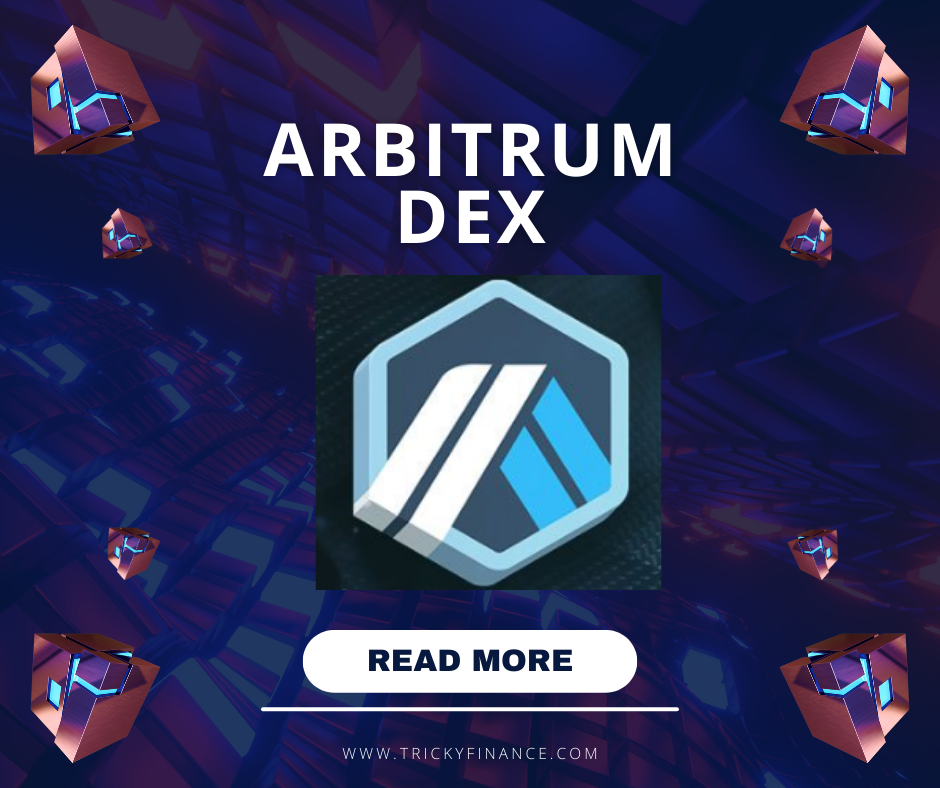The rise of Layer 2 scaling solutions like Arbitrum is reshaping the landscape of decentralized finance (DeFi), particularly in the realm of Decentralized Exchanges (DEXs). Arbitrum stands out as a leading choice for DEX projects due to its scalability, efficiency, and security features. This article aims to explore the growing ecosystem of DEX projects on Arbitrum, highlighting their distinct characteristics and contributions to the DeFi space.

Arbitrum’s Role in Empowering DEXs
Arbitrum, serving as a Layer 2 scaling solution for Ethereum, has unlocked new possibilities for DEX projects. With its innovative rollup technology, Arbitrum effectively mitigates transaction costs and enhances transaction throughput, addressing critical challenges within the Ethereum network. Consequently, an increasing number of DEX projects are opting for Arbitrum as their preferred platform, heralding a transformative era for decentralized trading. The subsequent sections will delve into several of these pioneering DEX projects that are shaping the Arbitrum ecosystem.
The top 7 decentralized exchanges (DEX) on Arbitrum for 2024
-
-
Uniswap
Uniswap stands out as a leading decentralized exchange (DEX) operating on the Arbitrum blockchain, facilitating the seamless swapping of ERC20 tokens. Its notable features encompass an automated liquidity protocol, the presence of a governance token known as UNI, and the provision of self-custodial trading. Uniswap emphasizes decentralization, self-custody, transparency, and enhanced accessibility, resulting in its prominence within the decentralized finance (DeFi) ecosystem. With over 58 million trades executed and supported by more than 72,000 liquidity providers, Uniswap boasts a total value locked (TVL) exceeding $6 billion USD. Furthermore, the platform extends its operations across various blockchains including Ethereum, Polygon, Arbitrum, Optimism, Binance Smart Chain, and Celo. Uniswap’s commitment to open-source principles ensures transparency and fosters trust among its user base.
3. Camelot DEX
It emerges as an inventive decentralized exchange (DEX) propelled by community engagement and constructed within the Arbitrum ecosystem. Engineered for exceptional efficiency and adaptability, it promises robust and sustainable liquidity solutions. Central to its offerings is a dual Automated Market Maker capable of handling both volatile (UniV2) and stable (Curve-like) swaps. Notably, Camelot DEX pioneers dynamic directional fees for trading pairs, enabling customized fee structures tailored to each pool’s specific characteristics. Operating seamlessly on Arbitrum, this DEX leverages Ethereum’s cutting-edge layer-2 solution, facilitating off-chain transaction processing before bundling and submitting them as a single transaction to the base layer.
4. GNS
5. Sushi
6. Radiant
Radiant operates as a decentralized exchange (DEX) on Arbitrum, renowned for its efficient and rapid trading capabilities. Users can earn protocol fees in blue-chip assets and enhance their market rewards through RDNT emissions. Notably, the locked dLP feature stands out for maximizing APR. Introducing the Omnichain Money Market, Radiant pioneers the first cross-chain lending protocol atop Layer Zero Labs and Stargate, enabling seamless asset deposit and borrowing across multiple chains. Additionally, Radiant plans to incorporate collateral support for highly sought-after tokens like ARB (Arbitrum’s native token) and stETH (Lido’s staked Ethereum).
7. Mycelium
Mycelium emerges as a native decentralized trading protocol on Arbitrum, offering two primary products: Mycelium Perpetual Swaps and Mycelium Perpetual Pools. The former facilitates token pair exchanges across various chains, while the latter functions as an on-chain aggregation vault for fund treasuries. Users have the opportunity to stake the platform’s native utility token, MYC. Founded by Pat McNab, Morgan, and Ray Mogg, Mycelium stands out as a leading decentralized trading protocol empowered by Arbitrum. It underscores the potential of decentralized exchanges in delivering efficient, secure, and cross-chain trading experiences.
Conclusion
Princy Agarwal, a postgraduate in English from Delhi University, writes content for Tricky Finance, where they simplify complex financial topics for readers. With a knack for clear communication, Princy’s work helps make finance understandable and accessible to all.



